
ON Tennyson Down at night
you won’t meet the poet’s ghost.
The wind recites purely for itself,
the stars scrawl their ciphers
and the freefall space—that space
without a fingerhold for poet or ghost—
reclaims what was probably its to begin with.
The monument of sheer enduring stone
erected in memoriam against the gale—
against the very chaos of stars
that the good poet threw his loop over—
waits in bright expectancy.
But nothing comes. Nothing comes.
And in broad daylight, when the poet’s coattails flutter,
and the brim of his wide-awake hat sloshes as he strides
downhill carrying another sixpenny bottle of bright air
and crying, ‘Drink! Drink!’—he isn’t here.
The poet isn’t here.
A great granite cross, five times his height,
does its best to bear the weight of him,
to write one true verse in his stead.
But nothing comes. Nothing comes.
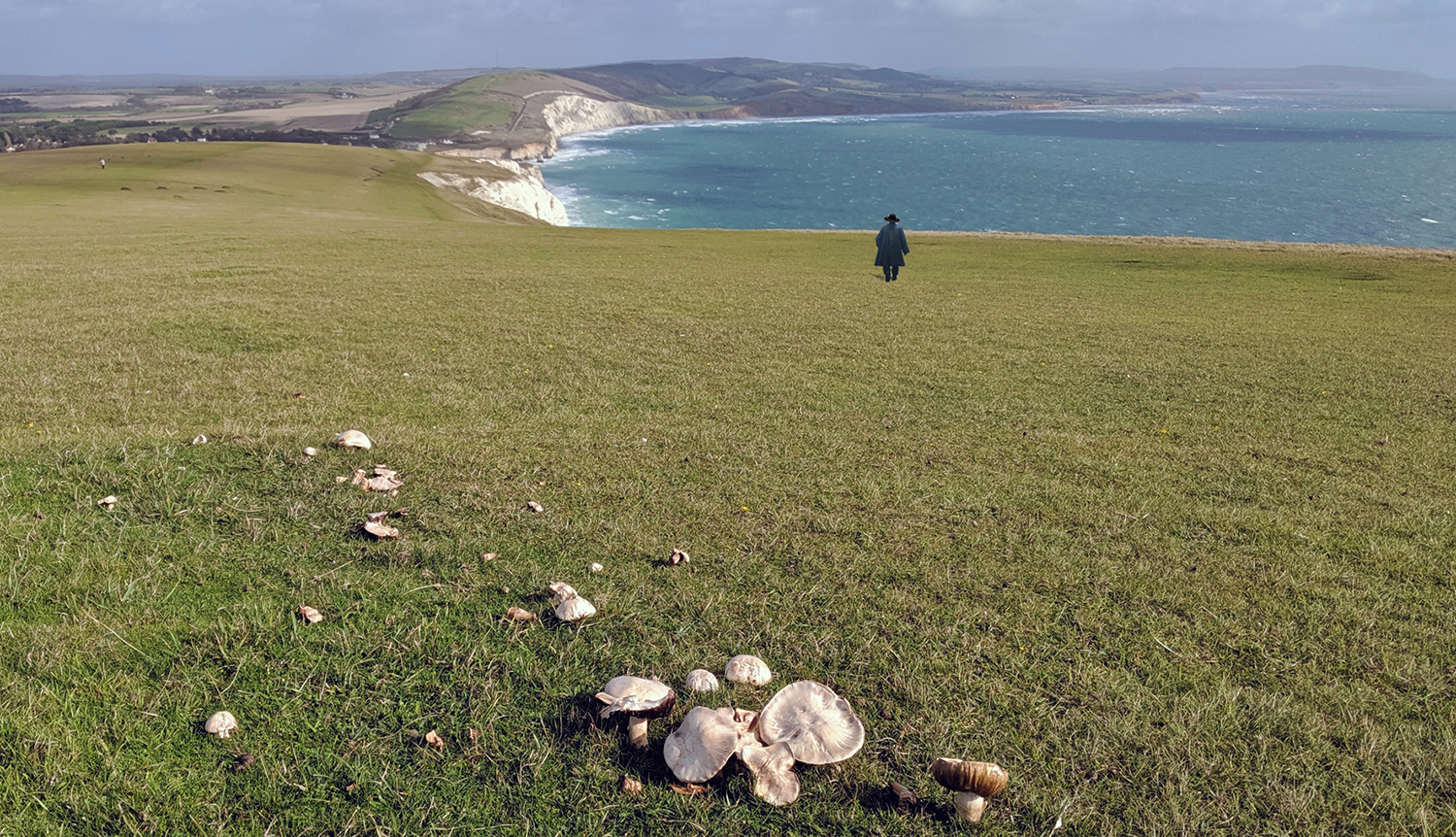


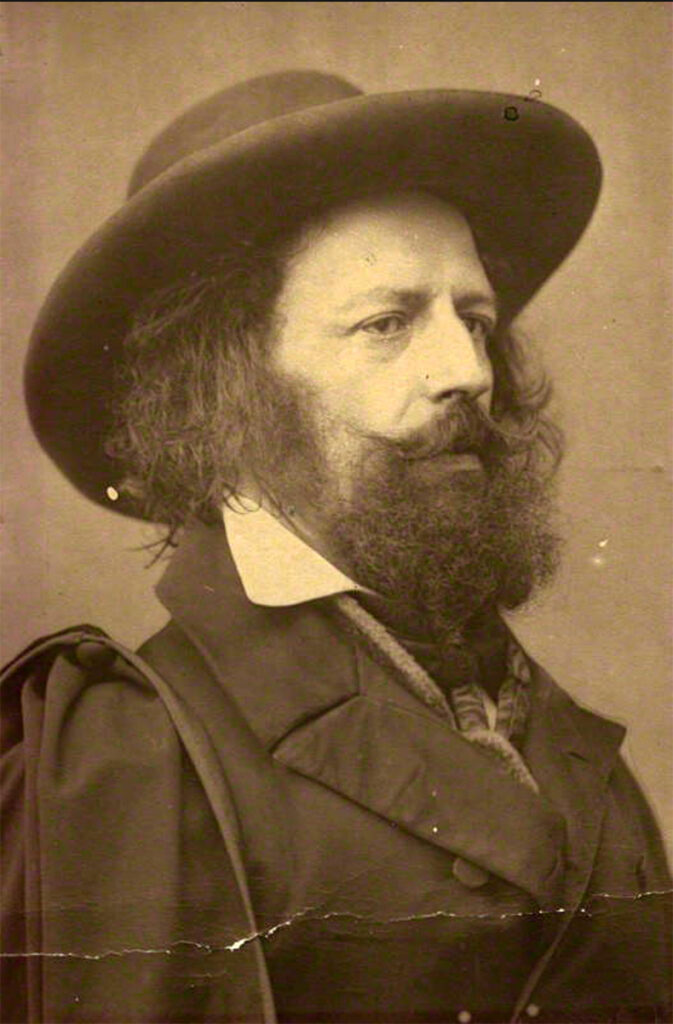
The Tennysons at Farringford House,
Isle of Wight
1850 was a landmark year for Alfred Tennyson. He published his long poem ‘In Memoriam A.H.H.’, honouring his friend Arthur Henry Hallam; he was made Poet Laureate, following the death of Wordsworth, and he married Emily Sellwood, a girl he had known since childhood.
Before his appointment as Laureate, Tennyson had been a wanderer and gipsy around England: ‘you may come across him in a country inn, with a foot on each hob of the fireplace, a volume of Greek in one hand, his meerschaum in the other, so far advanced towards the seventh heaven that he would not thank you to call him back into this nether world.’
Now celebrity besieged him. He complained, ‘I get such shoals of poems that I am almost crazed with them. The two hundred million poets of Great Britain deluge me daily with poems.’ Autograph hunters lay in wait. In the street, a war veteran forced into his hands a huge twelve-canto epic about the battle of Waterloo.
For Tennyson, retiring by nature, and Emily more so, the publicity his laureateship caused was difficult. In 1853, Alfred discovered a secluded property for rent at Freshwater, on the remote far side of the Isle of Wight. Farringford was a large house in Neo-Gothic style with lovely gardens and within easy reach of the High Down and sea. The poet was excited to show Emily. The two came down from London but missed the steamer from Lymington and had to cross to the island by row boat. Emily fell instantly in love with Farringford, calling it ‘the dearest place on earth’. She and Alfred rented the house, and three years later, they bought it. With their two sons, Hallam and Lionel, the Tennysons lived there happily until 1869.
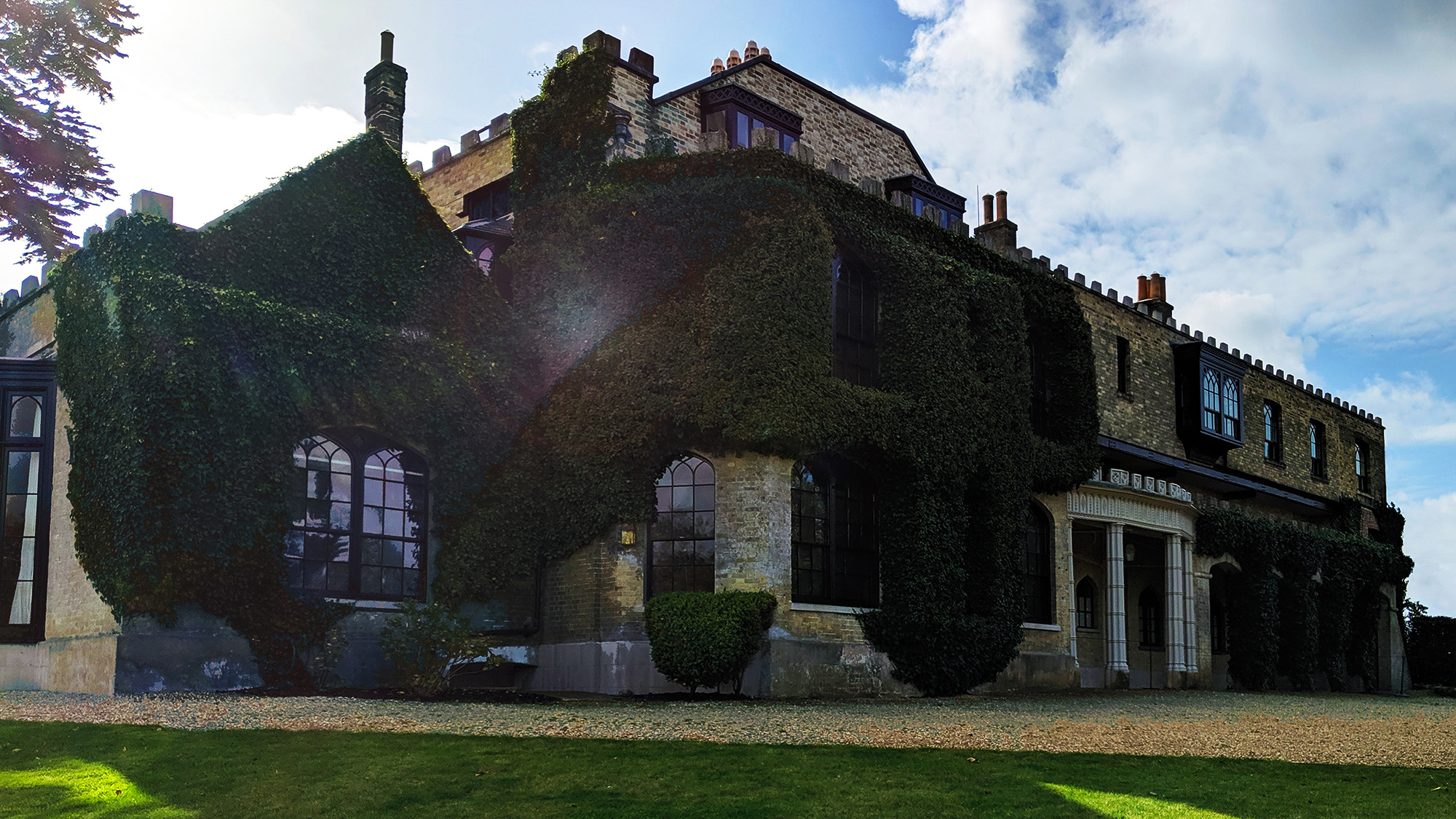
Like Wordsworth, Alfred Tennyson was a fanatical walker. Taking the network of paths through woodland known as the ‘wilderness’ behind Farringford, Alfred made daily climbs to the High Down overlooking the sea. Some paths he cleared and widened. The birth of Lionel Tennyson in 1854 severely impaired Emily’s health, but Alfred managed to take her with him up to the down by pulling her along in a little carriage. Upon the High Down, he wrote much of his poetry, walking back and forth, declaring the ever-elusive lines. Here he tried out ‘The Charge of the Light Brigade’ and parts of ‘Maud’:
But arose, and all by myself in my own dark
garden ground,
Listening now to the tide in its broad-flung
shipwrecking roar,
Now to the scream of a madden’d beach
dragg’d down by the wave,
Walk’d in a wintry wind by a ghastly
glimmer, and found
The shining daffodil dead, and Orion low in
his grave.
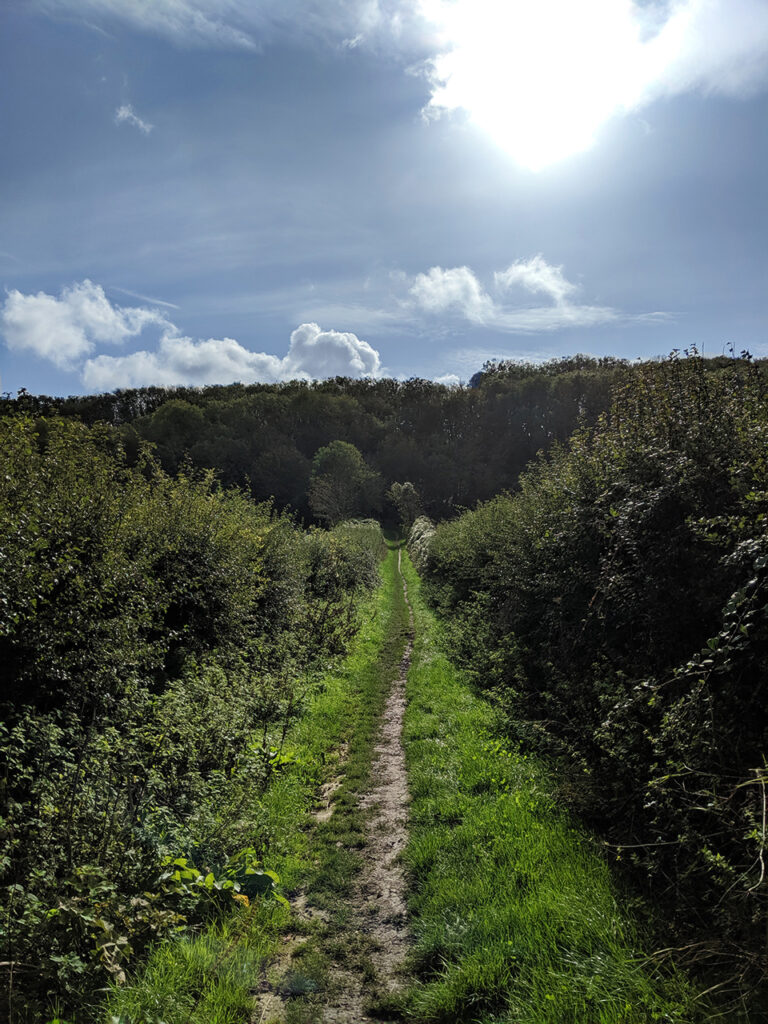
The High Down looks east over Freshwater Bay. South is Highdown Cliffs, a sheer drop of three hundred feet to the sea below. Grazing cattle and rabbits turn the soft grass into a cricket pitch. The pummelling wind blows wildly from west and south. Hands seek pockets as you climb the hill. Tennyson once said that the air up here is so good for writing poetry you could bottle and sell it for ‘sixpence a pint’.
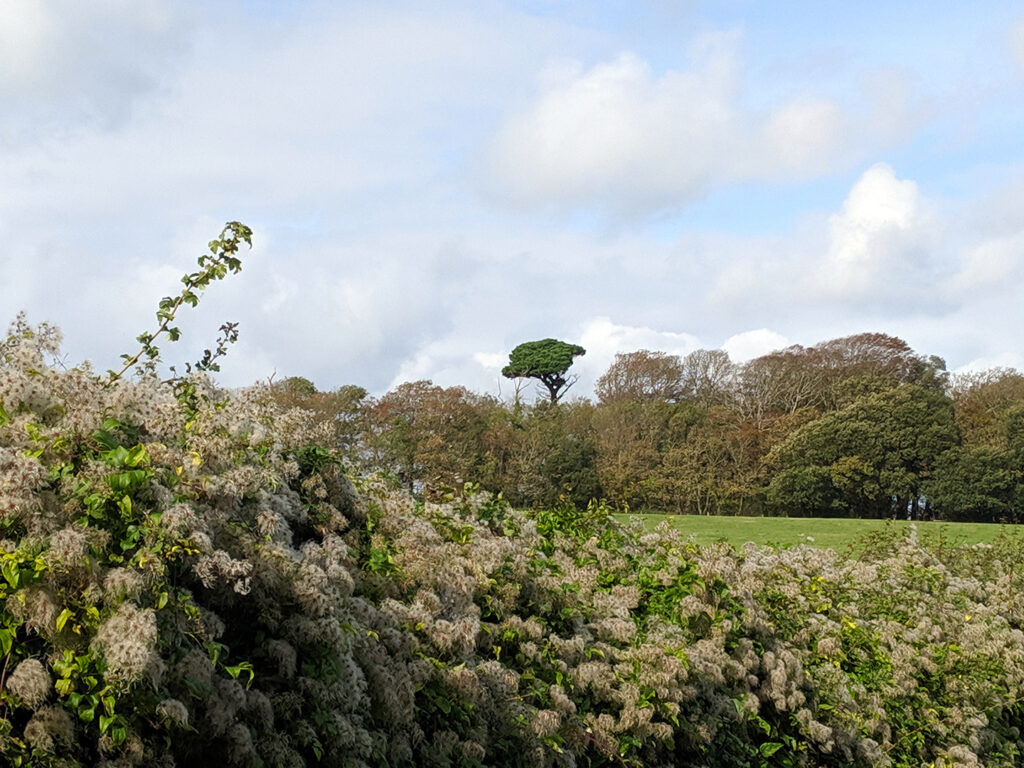
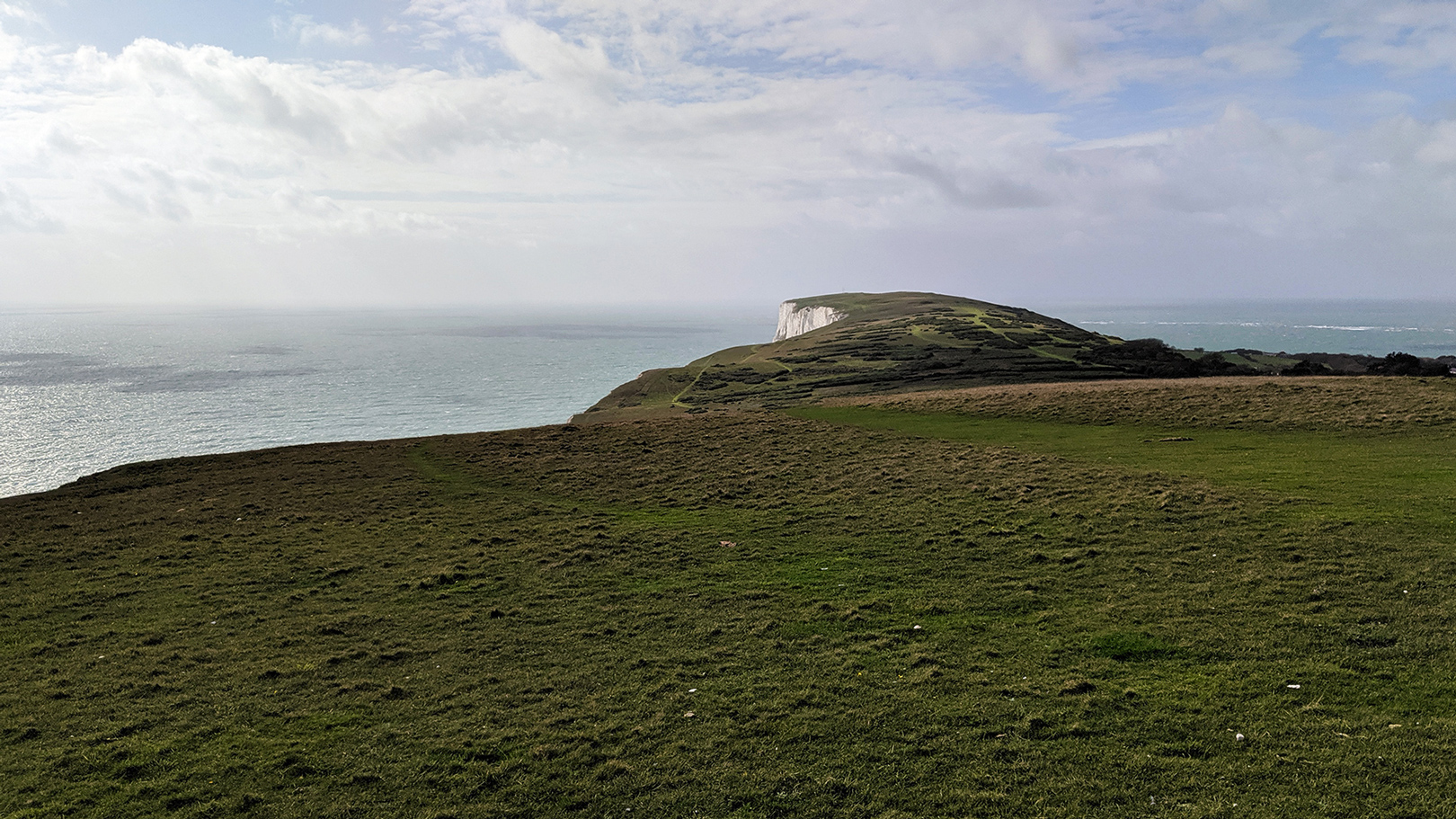
The garden at Farringford was Alfred and Emily’s delight. Alfred mowed and rolled the lawns. He dug the weeds and planted out beds of flowers and vegetables. In the walled garden grew fig, quince and apple trees, and Alfred enjoyed carving ivy leaves from apple wood. For Emily to enjoy the afternoon view to the west, he made an arbour using withy reeds.

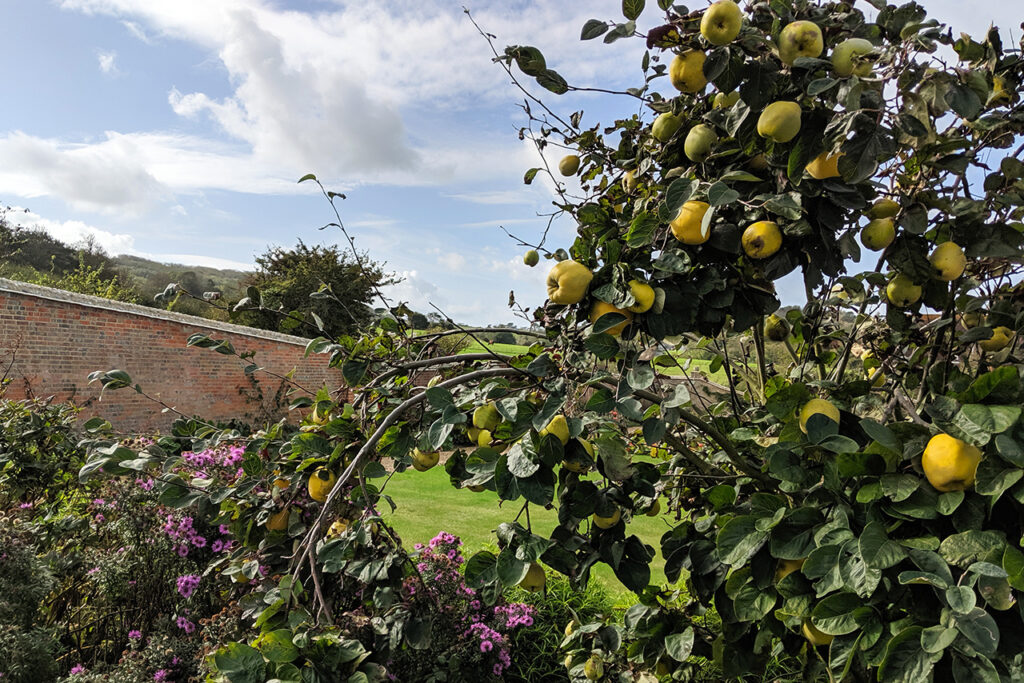
As time went by, increasing numbers of tourists came to Freshwater, threatening the Tennysons’ precious isolation. People peered in the windows when the family were having breakfast. Two fat ladies and sixteen children chased Alfred down the street. His anxiety got the better of him to the point where he was seen running away from a flock of sheep. To still be able to continue his walks in the wilderness, reach the down, and not have tourists accost him in the lane, he had a bridge built. By 1869, however, the problem was so bad that that family decided to move to Aldworth, West Sussex, and only spend the winters at Farringford.
T S Eliot called Tennyson the saddest of all English poets. Poetry led Tennyson to see too much and too deeply, but it equally became his means of mystical seeing, of seeing truly:
Strange, that the mind, when fraught
With a passion so intense
One would think that it well
Might drown all life in the eye,—
That it should, by being so overwrought,
Suddenly strike on a sharper sense
For a shell, or a flower, little things
Which else would have been past by!
He frequently felt trapped—trapped by the constant pressure of his public image as Poet Laureate and by the distinction that involved. Though often full of deep melancholia, his poetry at its best seems to flow from a state of supreme disassociation. Whilst at Farringford in May 1874, he sent a letter to the American philosopher Benjamin Blood. Blood had experienced consciousness peculiarly free of self or personal identity during a dental procedure under the influence of nitrous oxide. Tennyson wrote:
‘I have never had any revelations through anaesthetics, but a kind of waking trance—this for lack of a better word—I have frequently had, quite up from boyhood, when I have been all alone. This has come upon me thro’ repeating my own name to myself silently, till all at once, as it were out of the intensity of the consciousness of individuality, individuality itself seemed to dissolve and fade away into boundless being, and this not a confused state but the clearest, the surest of the surest, utterly beyond words—where death was an almost laughable impossibility—the loss of personality (if so it were) seeming no extinction, but the only true life. I am ashamed of my feeble description. Have I not said the state is utterly beyond words?’
